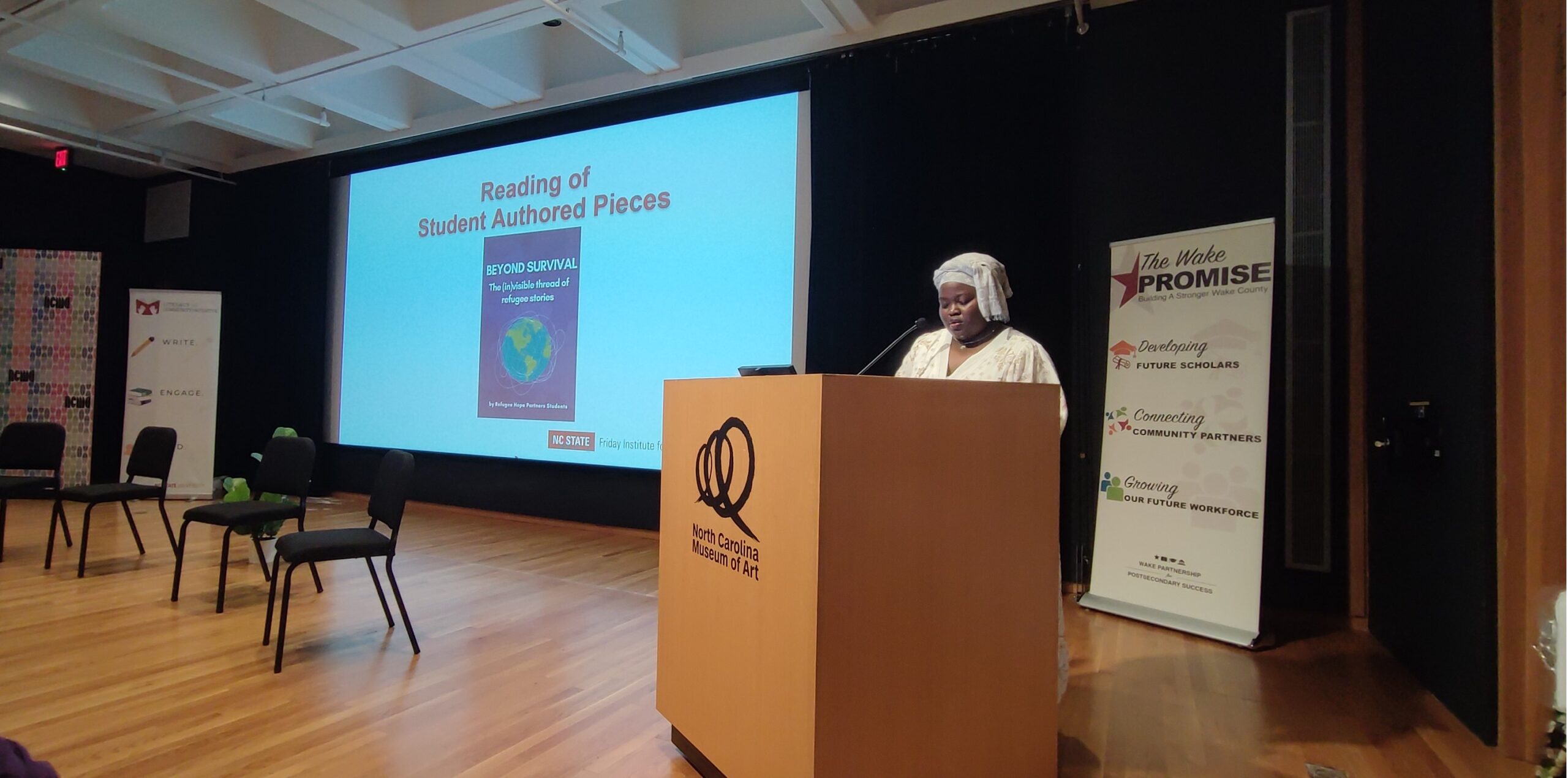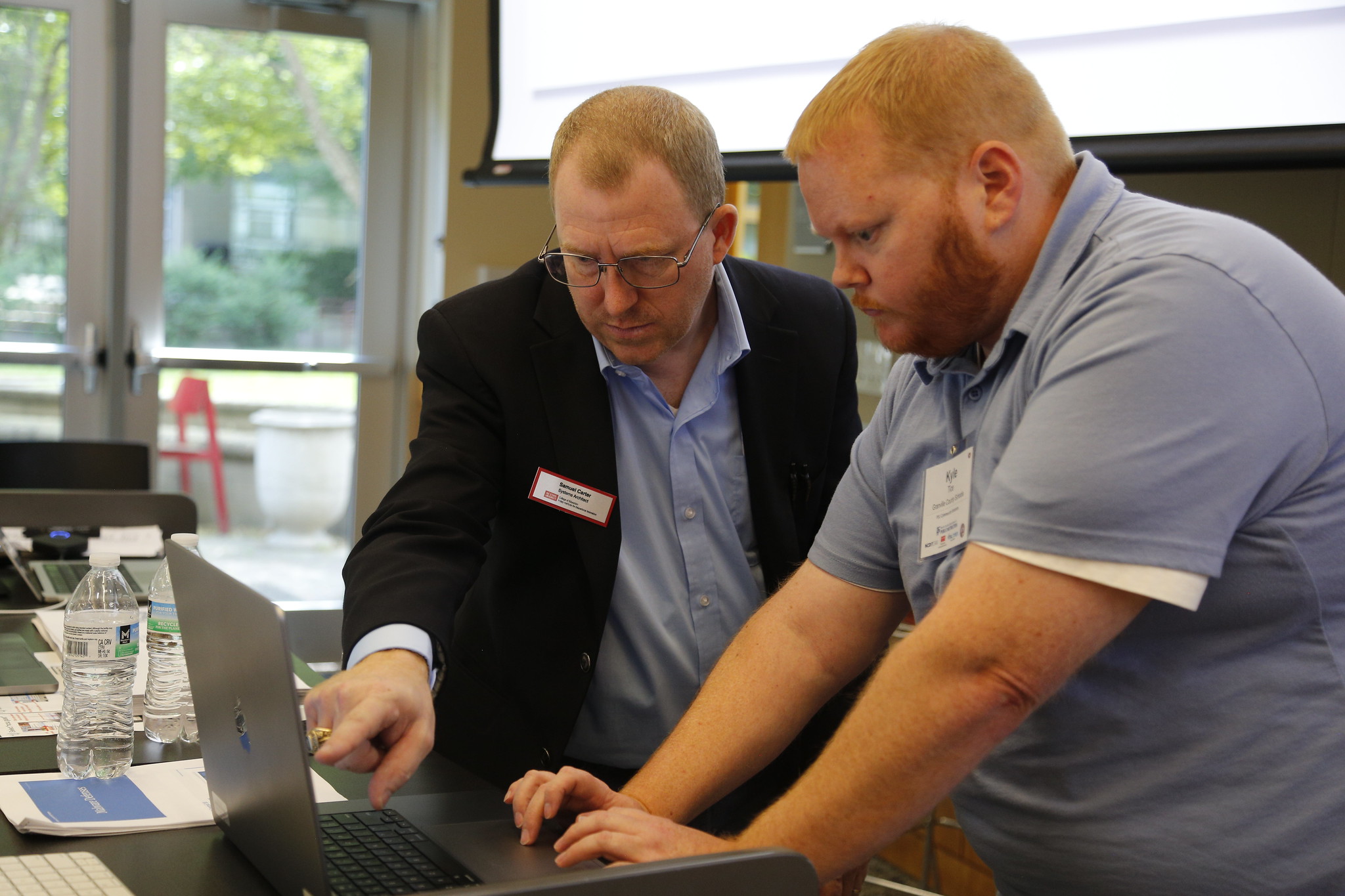Senior Director Shaun Kellogg Presents Findings from North Carolina’s Advanced Teaching Roles Evaluation to the State Board of Education

Raleigh, NC – On Nov. 6, 2024, Shaun Kellogg, senior director at the Friday Institute for Educational Innovation, and Thomas Tomberlin; senior director, Educator Preparation, Licensure, and Performance at the North Carolina Department of Public Instruction; presented key findings from the 2024 Evaluation Report of North Carolina’s Advanced Teaching Roles (ATR) program to the North Carolina State Board of Education. The presentation offered a brief overview of the program’s statewide impacts on teacher and student outcomes, insights into program implementation across districts and recommendations for enhancing ATR’s effectiveness. The full meeting agenda is available here.
The ATR program, launched by the North Carolina General Assembly in 2016, is designed to amplify the impact of highly effective teachers by empowering them to support student academic growth, mentor peers and lead classroom teams. During the 2023-24 school year, 17 public school units fully implemented the program, with 849 advanced teachers serving 277 schools and supporting over 2,461 classroom teachers statewide.
Kellogg’s presentation highlighted select findings on the program’s impact including:
- Positive Effects on Student Math Achievement: ATR schools, particularly those with more years of implementation, outperformed similar non-ATR schools in math. High school math gains were especially notable, equating to approximately 1.6 months of additional learning.
- Increased Teacher Effectiveness: Teachers in ATR schools demonstrated higher EVAAS (Education Value-Added Assessment System) scores in math, indicating stronger instructional impact in comparison to their peers in non-ATR schools.
- Gains in ELA and Science: While ATR schools showed promising trends in English Language Arts (ELA) and science, these gains were not consistently statistically significant. Kellogg noted that schools with more established ATR programs tended to yield stronger outcomes, suggesting program effects grow over time.
- Challenges in Teacher Retention: The evaluation found no substantial evidence that ATR is improving overall teacher retention rates in participating schools. However, further analysis will focus on the retention of teachers directly supported by advanced teachers.
In addition to these impacts, Kellogg’s presentation highlighted program alignment to new legislative requirements and underscored variation in program implementation among public school units (PSUs), including differences in job roles, compensation and responsibilities. The presentation also touched upon findings from in-depth case studies of ATR programs in Pitt and Wilson County Schools. Both district programs demonstrated notable strengths in supporting academic growth and opportunities for professional advancement but also shared similar challenges with program funding and alignment with new legislative requirements.
Kellogg concluded with recommendations for state leaders, including prioritizing sustainable funding for ATR and providing targeted support to help districts align with recent legislative requirements.
“The Advanced Teaching Roles program holds tremendous potential for elevating teaching and learning in North Carolina,” said Kellogg. “To ensure the long-term success of these programs, PSUs expressed a need for reliable funding, as well as support and flexibility in meeting new legislative requirements.”
The findings presented reflect a collaborative effort between the Friday Institute, NC State College of Education, North Carolina Department of Public Instruction and ATR districts across the state to support evidence-based improvements in educational policy and practice statewide.
The full 2024 evaluation report is available here.
For further details on the report or the ATR program, please contact:
Dr. Shaun Kellogg
Senior Director
Friday Institute for Educational Innovation
Email: shaun.kellogg@ncsu.edu
Phone: (919) 513-8563
The first draft of this article was generated using ChatGPT.
- Categories:


